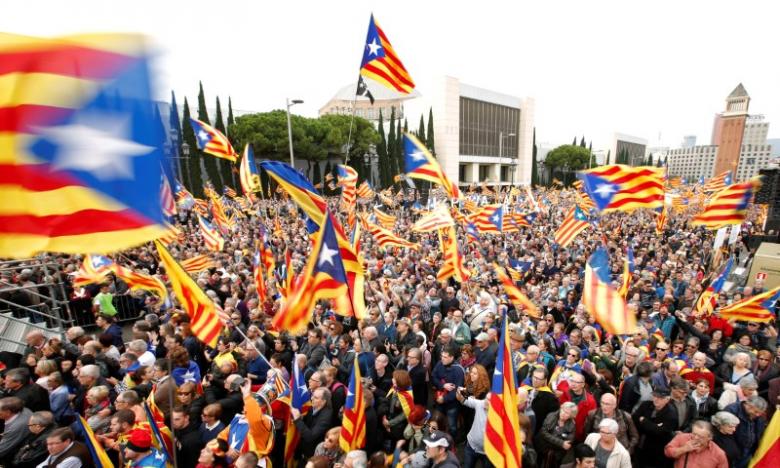 By Sonya Dowsett
By Sonya Dowsett BARCELONA - The regional government of Catalonia on Friday will call a referendum on a split from Spain, setting up a renewed confrontation with Madrid, which maintains such a vote is illegal and against the constitution.
Leaders in the northeastern Spanish region will set a date for the vote, a spokesman for regional head Carles Puigdemont said, bringing to a head years of court battles and political clashes with the central government over the independence movement. The vote has been flagged for after the summer.
Previous secessionist challenges in Catalonia, after the long-running independence drive began to gather more popular support during an economic crisis, were blocked by Spain's conservative government, which appealed to the Constitutional Court.
Pro-independence campaigners staged a symbolic ballot on splitting from Spain, organized by volunteers rather than government officials to get around court restrictions, in 2014, months after Scots voted to stay in the United Kingdom.
About 2 million people voted in favor of seceding in Catalonia in that non-binding ballot, though turnaround was relatively low in a populous and wealthy region that makes up around a fifth of Spain's economic output.
More legal wranglings are now likely to follow this referendum announcement, which could culminate in regional elections in Catalonia if plans to hold the vote are quashed, a central government source said.
Under Article 155 of Spain's constitution, Madrid has the power to intervene directly in the running of Catalonia's regional government, forcing it to drop the vote and obey the law.
This could involve sending in the police or suspending the regional government's ruling authority in the industrial region, which has its own language and capital city Barcelona. This is widely seen as a last resort move, however.
Catalans, like Spain's other 16 autonomous regions, already have power over health and education spending. The region says the central government takes much more than it gives back under Spain's complicated system of budget transfers.
This feeling contributed to a surge of pro-independence fervor during Spain's worst years of recession at the beginning of this decade.
The pro-independence movement has lost support since Spain returned to economic growth. The last poll showed that 44.3 percent backed a split from Spain, while 48.5 percent want to continue with the status quo.
However, a majority of Catalans do want to hold a referendum on the question of independence, polls show.


